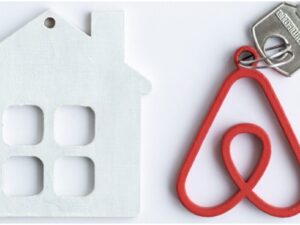
Property is regarded as a secure investment but if you grew your portfolio during the pandemic, you may find the pressure caused by high interest rates is pushing you towards the exit door.
Generally speaking, the longer you hold an investment, the more potential you have for capital growth. If you can make it through this period, the returns will come.
Here’s an outline of what’s going on with interest rates and how to minimise the holding costs as a property investor.
Why are high interest rates in Australia?
After dropping interest rates to record lows during the pandemic, the Reserve Bank increased them repeatedly during 2022 and 2023. This came from the need to control inflation; rising living costs were affecting Australians and higher mortgage rates are used as a ‘tool’ to curb spending and settle down those soaring prices.
Because many homeowners’ fixed low interest rates expired and their variable rates increased over the last twelve months, the average loan is now far more expensive than it was in 2020 and 2021. This puts pressure on family budgets and finances.
How to hold onto your investment property when interest rates are high
On the fence about keeping your investment because of high interest rates? The first thing to do is assess the reason why you bought it in the first place.
For most investors, rental income is a way to offset the holding costs. The real ‘prize’ is the equity and the financial gain when the property is sold. If you are worried that the property is currently paying for itself and nothing else, you might not be seeing the bigger picture.
Before you sell, sit down with your accountant or financial planner. Look at the capital gains you already have in the property and at the forecast for the future. You may realise it’s not worth throwing in the towel at this point in time.
If this is the case, there are options to reduce the pressure of holding costs. This includes the following:
• Revise your household budget. Is there money that can go towards your rental property costs while rates are high?
• Talk to your property manager about increasing the rent. If your tenant’s contract has expired, you may be able to do so very quickly.
• Look at investing in some renovations that could increase the yield, for example by adding an additional bedroom to the property or redoing the kitchen and bathroom.
• If you have a larger investment property; could it be subdivided and have a granny flat added or even an additional house? This isn’t a quick fix but it could make your investment more worthwhile.
• Speak with your broker to see if you can consolidate other debts or refinance to a more favourable rate.
• Make sure your accountant has included every possible tax deduction so you get some money back.
• Find ways to earn more money, for example by selling things you no longer use or being an Uber driver on the weekends (you won’t have to do this forever).
• Lease a spare room in your current home for a few months to have some more funds coming in.
Keep in mind that interest rates will eventually drop and you will have more financial breathing room.
What’s more, property prices will probably increase once this happens, so you will be able to see your persistence pay off.
Need to sell your investment property?
If it is the right time for you to sell your investment property, your property manager will be able to connect you with a reliable real estate agent who can walk you through the steps to achieve a
price you’re happy with.
Need to connect with a reliable property manager who can help you increase yield and returns? Talk to our industry leading leasing team at rentals@northgc.com.au today.
Disclaimer: This article is not intended as personal financial advice. Please consult a financial expert for more detailed information.




